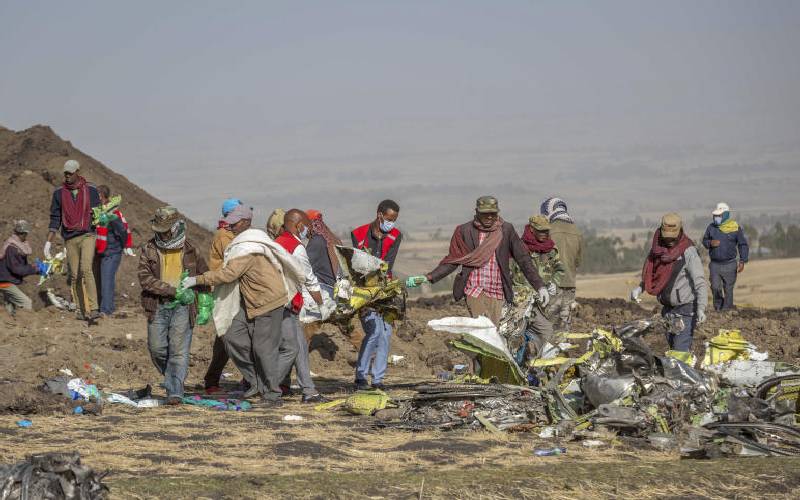×
The Standard e-Paper
Stay Informed, Even Offline

Rescuers work at the scene of an Ethiopian Airlines flight crash near Bishoftu, or Debre Zeit, south of Addis Ababa, Ethiopia, on March 11, 2019. [Photo, AP]
A plane crash such as that of the Ethiopian Airlines jet that killed all the 157 passengers on board can be devastating.